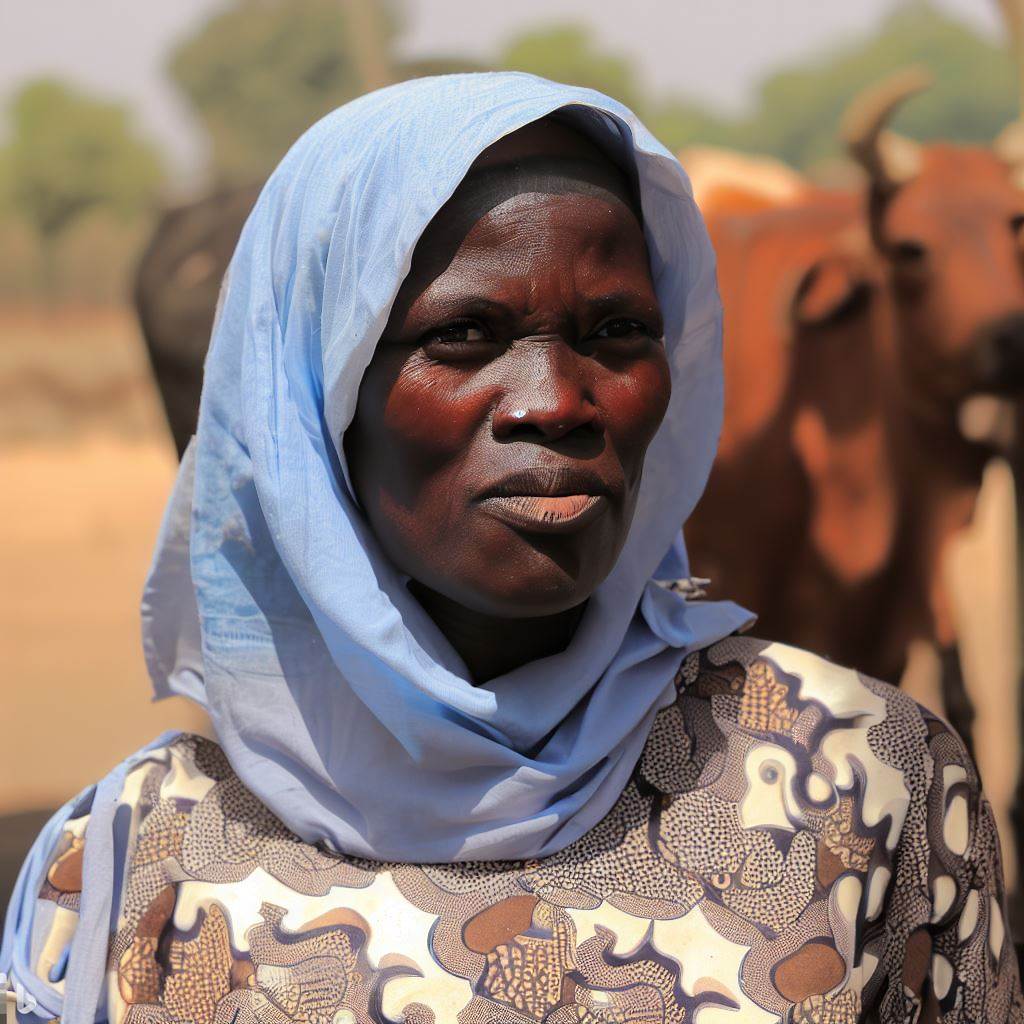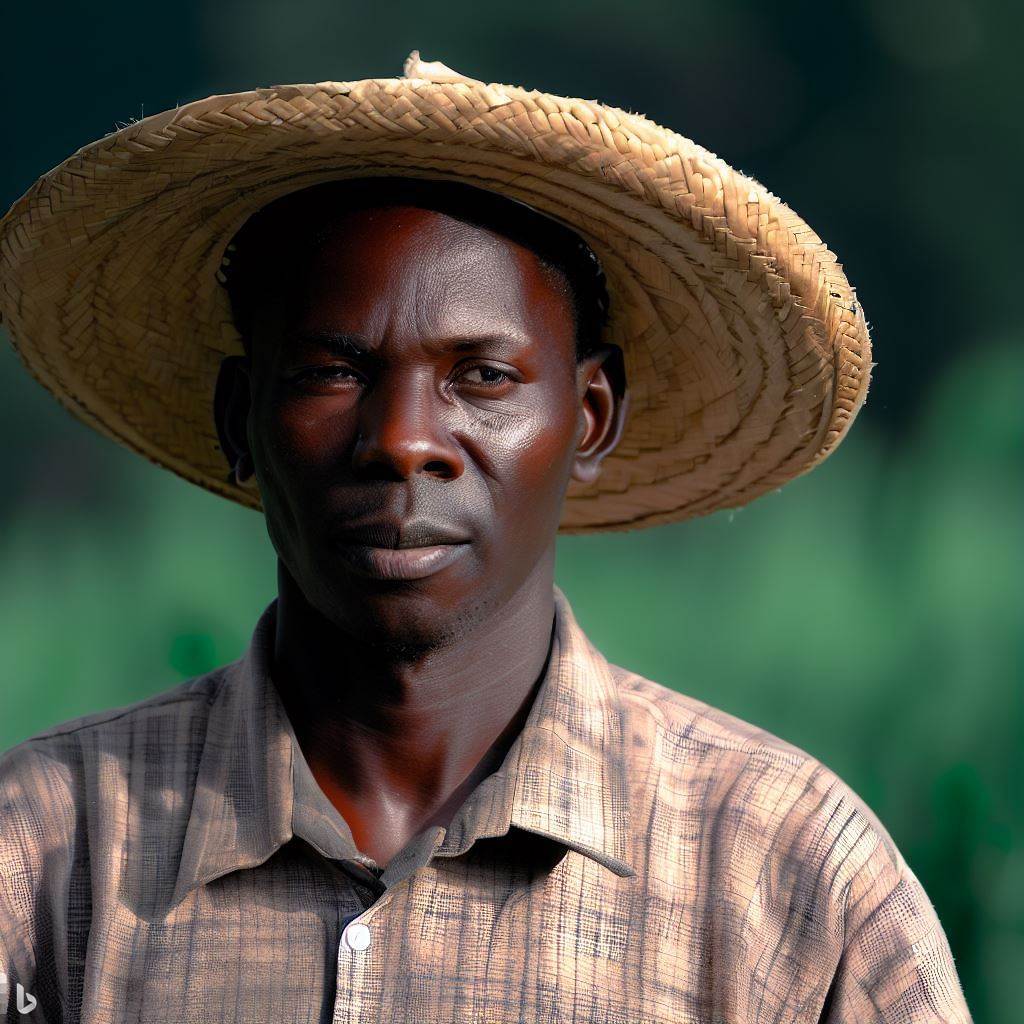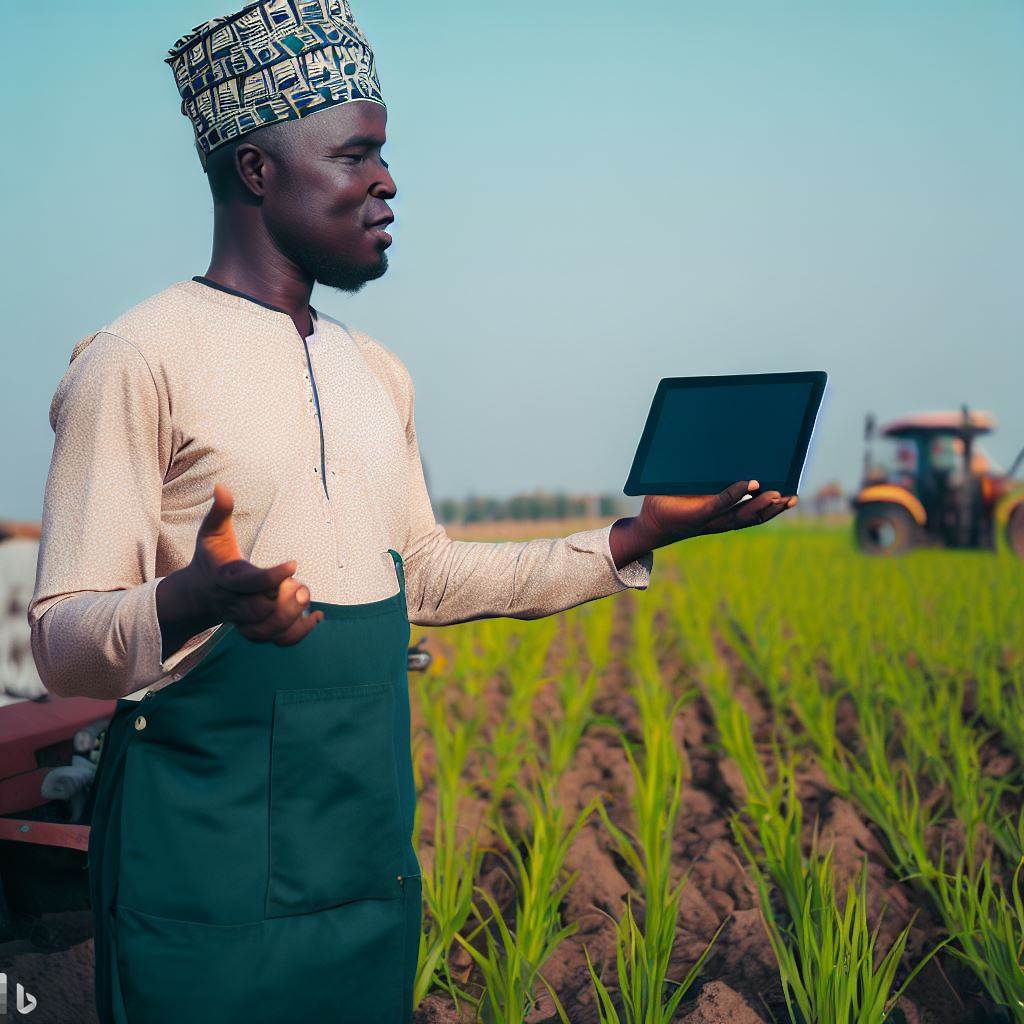Introduction
Climate change is a pressing issue that affects various sectors, including agriculture, which heavily relies on livestock production.
In Nigeria, livestock rearing is a vital component of the economy and society. Livestock provides significant contributions to food security, employment, and income generation for millions of Nigerians.
Nigeria, like many other countries, is experiencing the adverse effects of climate change.
The planet’s rising temperatures, changing rainfall patterns, and extreme weather events have profound implications for livestock rearing.
As such, it is essential to explore the impacts of climate change on livestock in Nigeria, as this has cascading effects on food security, economic stability, and livelihoods.
The effects of climate change on livestock are manifold. Rising temperatures pose challenges such as heat stress, reduced feed intake, and decreased reproduction rates.
Extreme weather events, including droughts and floods, disrupt livestock production by destroying grazing lands and feed sources.
Changes in rainfall patterns further affect availability and quality of water and pasture for livestock.
These impacts have severe consequences for Nigeria’s economy and society.
Livestock-related activities contribute significantly to GDP growth and job creation, primarily in rural areas.
Climate change-induced losses in livestock production can lead to reduced incomes, poverty, and food insecurity.
Moreover, the pressures on livestock farming can result in environmental degradation and biodiversity loss.
Understanding the implications of climate change on livestock is crucial to developing appropriate adaptation and mitigation strategies.
This post aims to explore the specific impacts of climate change on livestock in Nigeria and highlight the urgent need for sustainable solutions to safeguard the livestock sector’s future resilience.
Through resilient livestock practices and supportive policies, Nigeria can mitigate the negative effects of climate change and ensure the sustainability of its livestock industry.
Read: Agricultural Operations Manager: Career Path and Growth in Nigeria
Climate Change and Livestock
Climate change is a pressing issue that affects various aspects of our planet. In Nigeria, the impact of climate change on livestock is particularly concerning.
Livestock farming plays a critical role in the livelihoods of many farmers and herders in the country, providing them with income, food, and resources.
However, climate change poses significant challenges to this sector.
A. Understanding the impact of climate change on livestock
Understanding the impact of climate change on livestock is essential for proactively addressing its effects.
1. Changes in temperature and rainfall patterns
Firstly, changes in temperature and rainfall patterns are noticeable. These alterations disrupt the traditional grazing and breeding patterns for livestock.
The availability of suitable pasture and water sources is significantly affected, leading to mal-nourishment and dehydration among animals.
2. Increased frequency and intensity of extreme weather events
Furthermore, climate change is causing increased frequency and intensity of extreme weather events, such as droughts, floods, and heatwaves.
These events put livestock at risk, affecting their health and overall productivity. Extreme heat stress impairs growth and decreases milk and meat production.
Conversely, heavy rains and flooding can destroy grazing fields, shelters, and infrastructure, further compromising livestock well-being.
B. Effects on livestock production and health
1. Decreased productivity and impaired growth
The effects of climate change on livestock production and health extend beyond reduced productivity.
The spread of diseases and parasites is a significant concern.
2. Spread of diseases and parasites
Higher temperatures and altered precipitation patterns create favorable conditions for the proliferation of pests and diseases.
Livestock become more vulnerable to infections, such as tick-borne diseases and gastrointestinal parasites.
This not only affects animal health but also increases the need for costly treatments and medication.
3.Water and food shortages
In addition to health challenges, climate change also leads to water and food shortages for livestock.
Droughts and erratic rainfall patterns make it challenging to ensure an adequate water supply for animals.
This scarcity of water affects their hydration, digestion, and overall well-being.
Moreover, limited access to food resources disrupts the normal feeding routines, impacting the animals’ growth and reproductive cycles.
C. Implications for the livelihoods of farmers and herders
1. Loss of income and assets
The implications of climate change on livestock are not limited to animal welfare alone.
They have significant socioeconomic consequences for farmers and herders who depend on livestock for their livelihoods.
The loss of income and assets resulting from decreased productivity and increased mortality rates can be devastating.
Livestock farming provides a source of income, as well as assets that serve as collateral for loans or future investments.
Climate change-related setbacks undermine these economic foundations, trapping farmers and herders in a cycle of poverty.
2. Increased vulnerability to poverty and food insecurity
Furthermore, the increased vulnerability to poverty and food insecurity is a concerning consequence of climate change on livestock.
Farmers and herders who rely on livestock for food and income face challenges in meeting their basic needs due to climate-related disruptions.
Unpredictable weather patterns and the resulting decline in livestock productivity contribute to food insecurity, making it harder to sustain themselves and their families.
Basically, climate change has substantial implications for livestock farming in Nigeria.
Changes in temperature and rainfall patterns, increased extreme weather events, decreased productivity, spread of diseases, water and food shortages, and their impact on farmers’ livelihoods are all critical concerns.
Addressing these challenges requires not only proactive adaptations and resilient farming practices but also support and policies that protect the interests of those dependent on livestock for their sustainable future.
Read: Importance of Agricultural Operations Managers in Nigerian Agribusiness
Case Study: Nigeria
Current climate change trends in Nigeria
- Rising temperatures and changing rainfall patterns
- Regional variations and their impacts
Specific impacts on livestock in Nigeria
- Challenges faced by traditional herders and pastoralists
- Decreased availability of grazing lands and water sources
- Increased conflicts between farmers and herders
Government and community responses to address the issue
- Climate change adaptation and mitigation measures
- Promoting sustainable livestock farming practices
- Support programs and initiatives for affected communities
Read: Training and Education for Agronomy Sales Managers

Potential Solutions for Sustainable Livestock
Climate change poses significant challenges for livestock in Nigeria.
Rising temperatures, erratic rainfall patterns, and increased frequency of extreme weather events pose threats to the sustainability and productivity of livestock farming.
However, several potential solutions can be implemented to mitigate the adverse effects and foster sustainable practices.
A. Improving livestock breeds and genetics
Livestock breeds and genetics should be improved to enhance their resilience to climate change.
One of the primary solutions is to improve livestock breeds and genetics. Selective breeding and genetic technologies can enhance livestock resilience to climate change.
Breeding animals that are better adapted to changing environmental conditions can reduce vulnerability and improve overall productivity.
B. Investing in climate-resilient infrastructure and facilities
Building infrastructure and facilities that can withstand climate impacts will protect livestock. Investing in climate-resilient infrastructure and facilities is another crucial solution.
Constructing livestock shelters, barns, and other infrastructure capable of withstanding extreme weather events will protect animals and maintain their well-being.
Additionally, providing access to clean drinking water and improved waste management systems can help livestock withstand droughts and floods.
C. Enhancing water and pasture management systems
Efficient management of water and pasture resources can help ensure sustenance for livestock. Enhancing water and pasture management systems is essential for sustainable livestock farming.
Implementing efficient irrigation techniques, improving water storage methods, and promoting sustainable pasture management can ensure the availability of resources throughout the year.
This will support livestock nutrition and reduce dependence on unpredictable weather patterns.
D. Promoting sustainable feed and fodder production
Encouraging the production of sustainable feed and fodder can improve livestock nutrition. Promoting sustainable feed and fodder production is crucial to ensure adequate nutrition for livestock.
Strategies such as cultivating drought-resistant forage crops, implementing agroforestry practices, and promoting efficient feed utilization techniques can reduce the reliance on dwindling natural resources.
Additionally, by using locally available feed resources, the environmental impact of feed production and transportation can be minimized.
E. Encouraging diversified livelihood strategies
Supporting alternative income streams alongside livestock rearing can buffer climate risks. Encouraging diversified livelihood strategies can help farmers cope with climate risks.
Apart from livestock rearing, promoting alternative income-generating activities such as crop farming, beekeeping, or agribusiness diversifies income sources.
This provides a safety net during climate-related disruptions and reduces vulnerability to livestock losses.
F. Strengthening policy frameworks and institutional support
Developing robust policies and institutions can provide a supportive environment for sustainable livestock practices.
Finally, strengthening policy frameworks and institutional support is crucial for enabling sustainable livestock practices.
Developing and implementing policies that address climate change adaptation and mitigation in the livestock sector can provide guidance and support for farmers.
It is also essential to establish institutions that provide technical assistance, extension services, and financial support to livestock farmers.
Generally, adapting to the impact of climate change on livestock in Nigeria requires a multi-faceted approach.
By improving livestock breeds, investing in resilient infrastructure, enhancing water and pasture management, promoting sustainable feed production, encouraging diversified livelihood strategies, and strengthening policy frameworks, Nigeria can foster sustainable livestock practices.
These solutions will not only boost the resilience and productivity of the livestock sector but also contribute to food security and sustainable development in the face of a changing climate.
Read: Skills Needed for Agronomy Sales Management in Nigeria
Conclusion
Recap of the impact of climate change on livestock in Nigeria
Climate change has had a significant impact on the livestock sector in Nigeria.
Rising temperatures, unpredictable rainfall patterns, and increased frequency of extreme weather events have resulted in reduced feed availability, water scarcity, and the spread of diseases among livestock.
This has led to decreased productivity, increased mortality rates, and income loss for farmers.
It has also disrupted the food supply chain, resulting in higher prices and food insecurity for the population.
Importance of addressing the issue for sustainable development
Addressing the impact of climate change on livestock is crucial for sustainable development in Nigeria.
Livestock farming plays a vital role in the country’s economy, providing employment opportunities, contributing to GDP, and ensuring food security.
To ensure the resilience of Nigeria’s livestock sector, collective action is needed. Government intervention, such as implementing climate-smart agricultural practices and providing support to farmers, is essential.
There should also be a focus on research and innovation to develop climate-resilient livestock breeds and improve disease control measures.
Call for collective action and commitment to ensure the resilience of Nigeria’s livestock sector
Furthermore, stakeholders including farmers, researchers, policymakers, and international organizations need to collaborate and commit to taking proactive measures.
This involves investing in climate adaptation strategies, enhancing capacity building, and promoting sustainable land and water management practices.
By addressing the impact of climate change on livestock in Nigeria, we can safeguard the livelihoods of farmers, ensure food security, and contribute to the overall resilience and sustainable development of the country.




